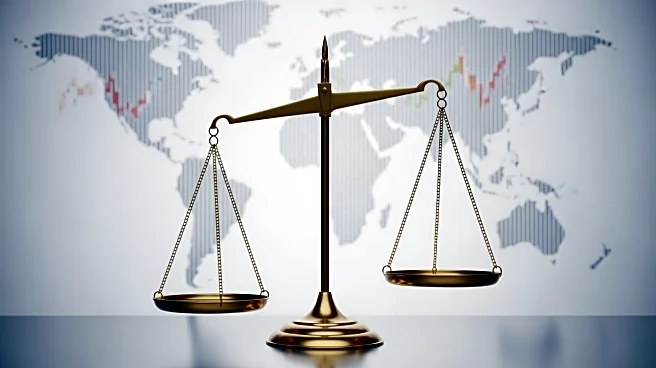What's Happening?
China has announced its fertilizer import tariff quotas for 2026, setting the limit at 13.65 million metric tons. This decision was communicated by the commerce ministry in a notice released on Tuesday. The quotas are part of China's broader strategy
to manage its agricultural inputs and ensure stable supply chains for its domestic market. The announcement is likely to influence global fertilizer trade dynamics, as China is a significant player in the agricultural sector.
Why It's Important?
The setting of import tariff quotas by China is crucial for global agricultural markets, as it affects the availability and pricing of fertilizers worldwide. Countries exporting fertilizers to China may need to adjust their production and export strategies to align with the new quotas. This could lead to shifts in global trade patterns and impact the pricing of agricultural products, potentially affecting farmers and agricultural businesses in the U.S. and other countries reliant on fertilizer imports.
What's Next?
Stakeholders in the agricultural and trade sectors will likely analyze the implications of China's tariff quotas on their operations. Exporters may seek to negotiate terms or explore alternative markets to mitigate the impact of the quotas. Additionally, policymakers and industry leaders may consider strategies to enhance domestic fertilizer production to reduce dependency on imports.
Beyond the Headlines
China's decision may also reflect broader geopolitical and economic strategies, as it seeks to secure its agricultural supply chain amidst global uncertainties. The move could prompt discussions on sustainable agricultural practices and the role of international trade agreements in ensuring food security.















